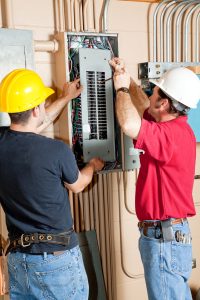Whether you have a gas or electric furnace, both require electricity for operation. Both types of furnaces can have electrical problems that interfere with how well your unit can operate. Plus, electrical problems can also pose safety hazards for your home and family.
If you suspect that your furnace is having electrical problems, you need to give us a call to schedule a service appointment for your HVAC in Las Vegas. You can keep reading to learn more about some common reasons for furnace electrical problems and the signs of each one so you can stay ahead of safety issues.
Loose Wires
When your heater first gets installed, everything is sturdy and secure. But as temperatures fluctuate, electrical wires may come loose. And the temperature changes are not just from your heater turning on and off.
Electricity running through the lines heats them up and causes them to expand. When electricity is not running through the lines, they cool down and contract to get a little smaller. These expansions and contractions can loosen the places where wires connect to your heater or lead into your home.
The best way to stay ahead of this problem is to schedule regular annual maintenance so that our team can address any electrical problems. We can usually identify loose wires and fix them before they impact heater operation or cause hazards.
Imbalanced Power
Sometimes electrical problems happen when a heater is more powerful than your electrical panel. If you have an older home with original electrical wiring, a modern heater may be too powerful. The operation can cause power surges that lead to your electrical panel tripping a breaker and turning your heater off.
The solution to this problem is upgrading your electrical panel so that it can safely operate your heater and other electronics and appliances around your home. When your heater has enough power, it can work effectively and last longer.
Outdated Systems
If your electrical panel is not the problem, your heater may be the problem. As your heater ages, it simply cannot keep up with heating your home the way it did when it was new. Most heaters will last for around 10 to 15 years before they need to be replaced. As you get closer to that 15-year mark, you may notice that your heater has more and more problems.
When it comes to electrical problems, you want to get them addressed right away, and that may mean investing in a new heating system. Not only can a new heater make heating your home safer, but it can also elevate your comfort and even save you on monthly energy costs.
Contact the Johnny On The Spot team for all of your heating needs. Schedule an appointment today if you have any electrical concerns related to heater operation.

